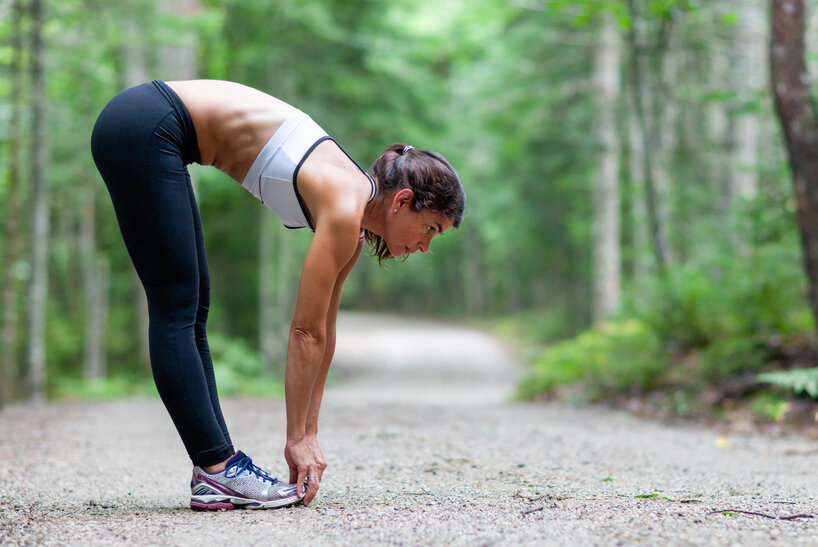Touching Your Toes to Reach Peak Brain Health
by Staying Sharp:You may already know that aerobic exercise improves parts of the brain responsible for memory and other thinking skills. Now a new small study published in the Journal of the American Geriatrics Society shows that performing simple balance and toning exercises might protect a different area of the brain that controls mobility.In the study, 47 men and women did a 45-minute individualized balance and toning program three times a week for a year. They were then given a test that timed how long it took them to get up from a chair, walk about 10 feet, turn around, walk back to the chair and sit down.The research team from the University of Illinois at Urbana-Champaign used brain scans to examine whether doing these types of mobility-improving exercises changed the size of the basal ganglia, a group of brain nuclei that’s responsible for motor skills.“Those who improved their mobility the most maintained their basal ganglia volume,” says lead author Lindsay S. Nagamatsu, an assistant professor at the School of Kinesiology, Western University, London, Ontario. “This is significant because brain size tends to decrease with age, not stay the same.”What’s more, these results show that aerobic exercise isn’t the only way to keep your brain healthy. “If you can’t do intense activity, you can do these balance and tone exercises and still reap brain benefits,” says Nagamatsu.The results show a “use it or lose it” effect: The more you use a particular brain region, the stronger it will be. “This fits with other research. For example, London taxi drivers have larger hippocampi, which is responsible for navigation, and pianists have larger motor cortexes because they use their hands a lot,” says Nagamatsu.Scientists believe one of the ways exercise boosts brain health is by building up chemicals that help the brain increase the quality and longevity of brain cells and also grow new cells. Most of this work has been done in the hippocampus and on how aerobic exercise affects memory. More studies need to be done to determine if this is also the case in the movement area of the brain.Regardless, according to the Global Council on Brain Health (GCBH) — an independent group of brain health scientists and experts intent on providing the most current recommendations to help people improve their cognition as they age — flexibility and balance should be part of your physical routine for the most robust brain health. And the better you move, the more you reduce your risk of falls and injury, allowing you to take your activities to a higher level.Source: http://bit.ly/2oSLKJK

